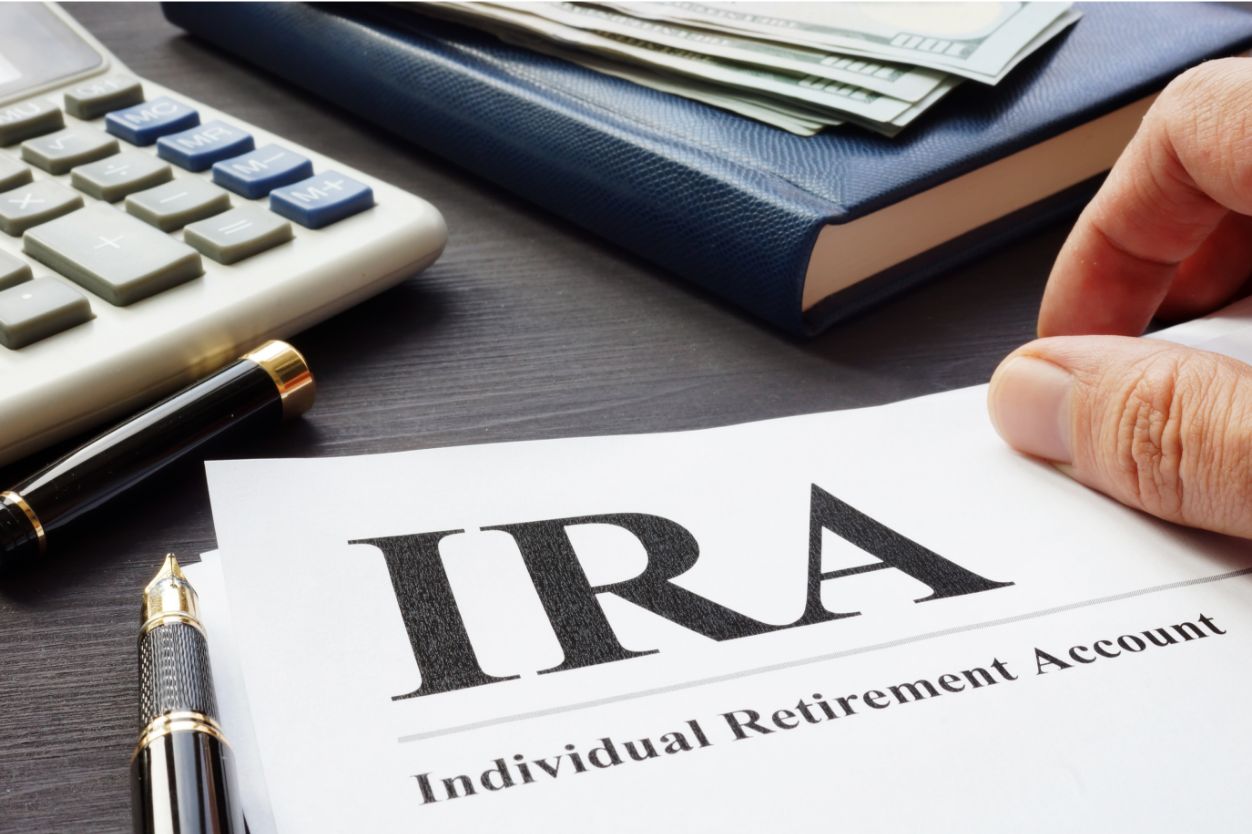Do you have enough saved for retirement? If not, you’re not alone. Around a third of Americans aren’t currently saving for retirement, and 16% haven’t even started, according to the Anytime Estimate Retirement Finances Survey.
As a self-employed real estate agent who operates off commission, how do you save for retirement? You may not have access to a company-provided 401(k), but there are still ways to financially prepare for your golden years. In this article, you’ll learn simple steps you can take to save up for retirement as an agent.
Contribute to an IRA

Failing to plan for retirement is a costly mistake. Fortunately, one of the easiest ways to start saving is to open an Individual Retirement Account (IRA). An IRA is an account that allows you to save money for retirement with tax advantages.
Depending on your income, tax status, and business growth, there are four types of IRAs you could open: a traditional IRA, Roth IRA, SEP IRA, and SIMPLE IRA. Let’s look at each one more closely.
What is a Traditional IRA?
Need a tax break right now? Consider opening a traditional IRA. Traditional IRAs are a popular choice because contributions are tax deductible. (Keep in mind that these benefits may be limited depending on your income and filing status.)
The potential downside to a traditional IRA is that you can only contribute up to $6,000 per year or up to $7,000 if you’re over 50 years old. Also, you have to pay ordinary income taxes when you make withdrawals in retirement. Once you turn 72, you must begin taking withdrawals, also called a required minimum distribution.
If you withdraw money from your traditional IRA before you turn 59 ½, you will have to pay a 10% penalty plus regular income taxes. You can avoid the 10% penalty if your withdrawals go toward a qualified college expense, certain medical expenses and insurance premiums, or a down payment on a house (up to $10,000).
What is a Roth IRA?
With a Roth IRA, you make contributions after taxes. Then in retirement, you can take money out tax-free. If you think your income will be higher in retirement (or if you’re concerned tax rates will increase), a Roth IRA may be a good option to help save you money on taxes in the long run.
Like traditional IRAs, Roth IRAs allow you to contribute up to $6,000 annually or up to $7,000 if you’re over 50. Unlike traditional IRAs, however, you can’t contribute to a Roth IRA if you earn more than the IRS’ income limit. In 2022, the Roth IRA income limit is $129,000 for single filers and $204,000 for those who are married and filing jointly.
Also, unlike their traditional counterparts, Roth IRAs don’t require withdrawals until the account owner’s death.
What’s a SEP IRA?
A Simplified Employee Pension (SEP) IRA is a helpful option if your income exceeds the limits for a Roth IRA or you want to contribute more than $6,000 per year. A SEP IRA needs to be set up by a business or a sole proprietor.
Contributions are tax-deductible, and you can contribute up to 25% of your salary as long as it doesn’t exceed $58,000 annually.
Remember, whatever percentage you give yourself, you must also give to all your employees. Because of this, SEP IRAs are better suited for agents who run their business solo, have only a few employees, or hire only contractors.
What’s a SIMPLE IRA?
If you own a growing brokerage, you may need a plan covering more than just a few employees. That’s where a Savings Incentive Match Plan for Employees (SIMPLE) can prove helpful.
Unlike conventional retirement plans like 401(k)s, SIMPLE IRAs don’t have high start-up and operating costs, making them a valid option for businesses with 100 employees or fewer.
To participate in a SIMPLE IRA, though, you as the employer can’t have any other type of retirement plan. You also must provide employees with a matching contribution of up to 3% of their salary or 2% in nonelective contributions.
Contribute to a Self-Employed 401(k)
Did you know you can open a 401(k) without being an employee? Adding a self-employed 401(k) to your investment portfolio is a great way to diversify your savings.
A self-employed 401(k)—also called a one-participant 401(k) or a solo 401(k)—allows you to contribute up to $61,000 annually as of 2022. You can only open this type of account if you don’t have any employees (an employed spouse doesn’t count).
Like IRAs, self-employed 401(k)s can be traditional or Roth. Traditional solo 401(k) contributions are tax-deductible, while a Roth solo 401(k) allows you to pay taxes on your contributions now rather than in retirement.
Keep in mind that if you have another 401(k) through another employer, your total contributions can’t exceed $61,000. The IRS sets contribution limits by person, not by plan. You can figure out your exact contribution limit and tax deduction using Publication 560.
Invest in Real Estate

Around 29% of Americans believe that real estate is one of the best ways to invest money they don’t need for the next 10 years, according to Bankrate. However, only 3% of Americans (around 10.6 million tax filers) actually earn money from rental properties, according to IRS data.
As a real estate agent, this is where you have an advantage. While many people may not know how to invest in real estate, you understand your market, typical rental rates in your area, and common buyer mistakes to avoid.
When investing for retirement, consider purchasing buy-and-hold assets. This gives properties time to appreciate until you retire. At that point, you can sell your properties or continue to earn rental income. (Other real estate strategies like fix-and-flips and wholesaling are better for making money now as opposed to investing for retirement.)
Let’s look at a few of the most popular real estate retirement investment strategies.
Tip: To learn more about investing in real estate, try one of our free investor Academy courses!
REITs
One of the easiest ways to invest in real estate is through a real estate investment trust (REIT). This allows you to invest without doing the heavy lifting of finding, purchasing, and managing properties.
Keep in mind that many REITs only allow accredited investors to participate. An accredited investor is someone who regularly earns at least $200,000 per year (or $300,000 if married) and has a net worth of at least $1,000,000, excluding their primary residence.
If you don’t meet those qualifications yet, that’s okay. Some REITs are open to investors of all income levels and allow you to invest with as little as $1,000. You can also get started with certain fractional homeownership opportunities with investments as low as $100.
Long-Term Rentals
A more traditional way to invest in real estate is purchasing a home to rent out long term. If you find a great deal, renting out a property allows tenants to pay off your mortgage for you while the home value hopefully appreciates.
It’s important to do your due diligence to find properties that would bring in more rental income than they would cost you. Some expenses to consider include:
- Mortgage (principal and interest)
- Home insurance
- Property taxes
- HOA fees
- Regular maintenance
- CapEx (larger expenses like roof or appliance replacements)
Short-Term Rentals
Short-term rentals have soared in popularity since the pandemic. Data from Airdna shows that short-term rental stays grew by 22% year over year in Q2 of 2022. Thanks to rental revenue and long-term appreciation, properties in vacation destinations can make great investments—as long as the area allows short-term rentals.
When considering a property as a short-term rental, be sure to account for at least the following expenses:
- Mortgage (principal and interest)
- Short-term rental insurance
- Property taxes
- County and state taxes for short-term rentals
- HOA fees
- Regular maintenance
- CapEx
- Supplies (cleaning items as well as starter packs for guests, including toilet paper, coffee, cooking spray, and seasonings)
- Furniture and décor
- Electricity and water
- Internet
To find properties that make excellent real estate retirement investments, you need a reliable data source. A platform like PropStream can help you analyze properties and their history, calculate expenses, zoning classifications, and more.
Start planning for your future today and try a PropStream 7-day free trial!



